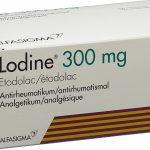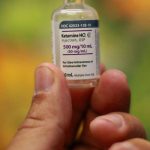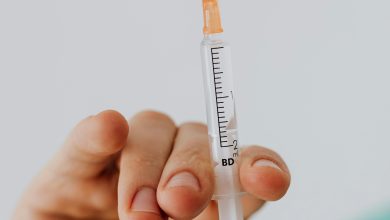Why Does a $260 Cancer Drug In The UK Cost $38,398 In The United States?

In the world of healthcare, the cost of medical treatment can often be a source of concern and frustration for patients. While advances in medical science have brought about numerous breakthroughs in the treatment of various illnesses, the high cost of many drugs and procedures has left patients struggling to navigate a complex and costly healthcare system. This issue becomes starkly evident when we examine the case of Paul Hinds, a prostate cancer patient in the United States, and his experience with the medication Lupron Depot.
Paul’s journey through the healthcare system, from his prostate cancer diagnosis to the hefty bills that followed, highlights a fundamental problem in the American healthcare system – the soaring cost of medications, especially when compared to prices in other countries, such as the United Kingdom. This article will delve into the reasons behind this stark price difference, shedding light on the pharmaceutical industry’s practices and the role of hospitals in driving up the costs of essential medications.
The Lupron Depot Dilemma
Paul Hinds, a 60-year-old man covered by United Healthcare, was diagnosed with advanced prostate cancer. His treatment involved the use of Lupron Depot, a medication designed to suppress the release of testosterone, which is essential in slowing the progression of prostate cancer. However, when the bills for this medication arrived, they left Paul and his healthcare provider, University of Chicago Medicine, reeling.
The total bill for two three-month Lupron Depot injections amounted to a staggering $73,812, with the second injection alone costing a jaw-dropping $38,398. This astronomical bill was a significant financial burden for Paul, even with insurance coverage. The shocking cost of Lupron Depot raises the question: Why does a medication that costs $260 in the United Kingdom carry a price tag of nearly $38,398 in the United States?
The Role of Pharmaceutical Patents
One of the fundamental reasons behind the exorbitant cost of medications in the United States, including Lupron Depot, is the pharmaceutical industry’s practice of extending patents on existing drugs. In the case of Lupron, it was initially developed in 1973. Still, its manufacturer managed to secure patent extensions by introducing a slow-release version in 1989. This tactic allowed the manufacturer to maintain exclusive rights to sell the product and continue profiting from it.
Additionally, Lupron Depot’s evolution into an intramuscular shot that could suppress testosterone for months further extended its patent life. Manufacturers like Abbott Laboratories and Takeda took advantage of this and steadily increased the price of the drug over the years. In 2000, a three-month shot of Lupron Depot cost an average of $1,245, but today, the price has skyrocketed to $5,866. This escalation in price occurred despite the drug being manufactured in the United States by AbbVie.
In contrast, in the United Kingdom, where healthcare is provided free of charge, the same drug is sold under the name Prostap for around $260. The stark difference in prices between the two countries is a result of the availability of the drug at a significantly lower cost due to different pricing and distribution models.
The 340B Program’s Impact
Part of the reason Lupron Depot’s cost remains lower in some U.S. hospitals, such as Chicago Medicine, is their participation in the 340B program. This federal program allows hospitals serving low-income populations to purchase drugs at deep discounts. As a result, Lupron Depot, while expensive, may not reach the same astronomical prices that patients like Paul Hinds face when seeking treatment in other healthcare settings.
The Hospital Markup
Hospitals and healthcare providers in the United States can and do charge significant fees for administering medications like Lupron Depot. This practice significantly drives up the cost of treatment. While the injection itself is relatively straightforward and quick, the hospital systems often add substantial markups to these services to boost their revenue. This excessive cost is borne by patients and insurers alike.
The Problem with Alternative Medications
One might wonder why patients like Paul Hinds do not opt for alternative medications, such as the pill Orgovyx, which is designed to lower testosterone levels. The answer lies in the convenience and effectiveness of Lupron Depot. Orgovyx, while an option, requires strict daily adherence, which some patients may struggle with. Additionally, Lupron Depot is preferred by some patients because it involves a simple injection with a small needle. This is in contrast to Orgovyx, which demands a daily regimen.
The Profit Motive in Healthcare
One of the underlying issues in the American healthcare system is the profit motive that permeates various facets of the industry. Hospitals and doctors can earn substantial amounts of money by marking up the price of medications and charging administration fees, as seen in Paul Hinds’ case. Writing a prescription for a drug that can be taken at home does not yield such financial benefits. This profit-driven approach, often at the expense of patients, highlights a systemic problem within the U.S. healthcare system.
Conclusion
Paul Hinds’ journey through prostate cancer treatment and the associated costs of Lupron Depot epitomizes the challenges and inequities within the American healthcare system. The staggering price difference between the United States and the United Kingdom for the same medication raises important questions about pharmaceutical industry practices, patent extensions, and the role of hospitals in inflating the cost of essential drugs.
As patients like Paul Hinds face mounting bills and navigate the complexities of the healthcare system, it is clear that healthcare in the United States remains a contentious issue. Addressing the root causes of soaring drug prices, such as patent extensions and hospital markups, is crucial for making healthcare more affordable and accessible for all Americans. Until meaningful reforms are enacted, patients and their advocates will continue to grapple with the financial maze of healthcare in the United States.





